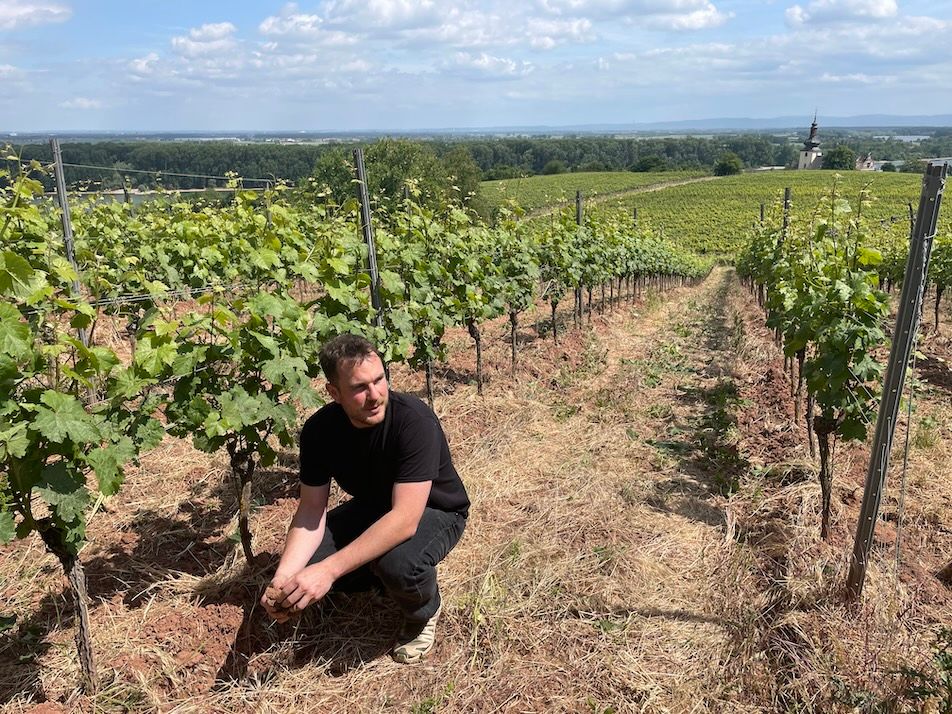Good wine sells itself, declares an old German proverb. And, when you have a native variety of the sheer quality of Riesling to work with, that should be enough. Riesling makes geographically expressive and long-lived wines, from sweet to bone dry.
But in these days of a dramatic shift in consumer tastes, the Rhine Valley’s winemakers know they need to be canny too. The successful recent drive for quality across the board is one component, certainly. But there’s a need for more lateral thinking too.
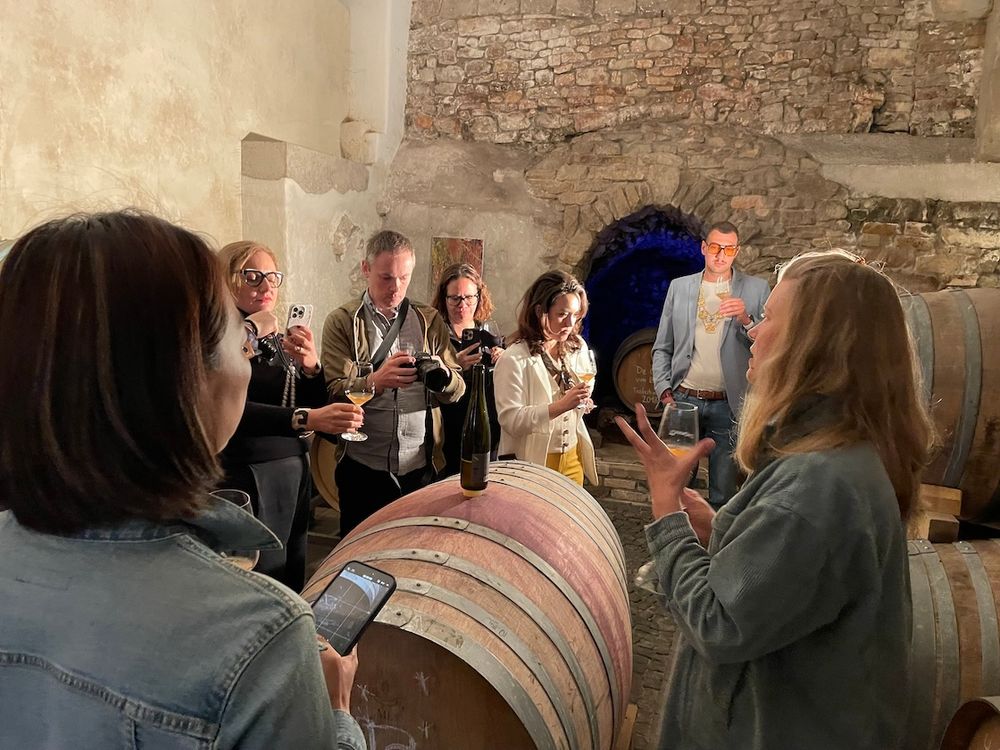
The international press addressed in a typical Rhine cellar
A good place to start is the Rheinhessen region, the largest and one of the most historic areas with 27,700 ha of vines under cultivation.
Weingut Leitz will be a familiar name to many consumers. I’m a big fan of the Rüdesheimer Magdalenenkreuz Riesling Kabinett earning 92 points in a recent tasting yet ludicrously underpriced in the UK at less than £15.
At its elegant visitors’ centre, Leitz is proud to proffer up its Grosses Gewächs (pronounded ‘guh-vex’). These are the finest dry wines, designated by the VDP growers’ association. They display everything you would expect from some of the world’s best Rieslings. Like the grand crus of Burgundy, these wines take the name of the vineyard and not the village. Up a truly vertiginous slope, the Kaiser Steermfeld (translated as “imperial stone field”) can trace its provenance directly back to 817 CE and an edict by Emperor Charlemagne.
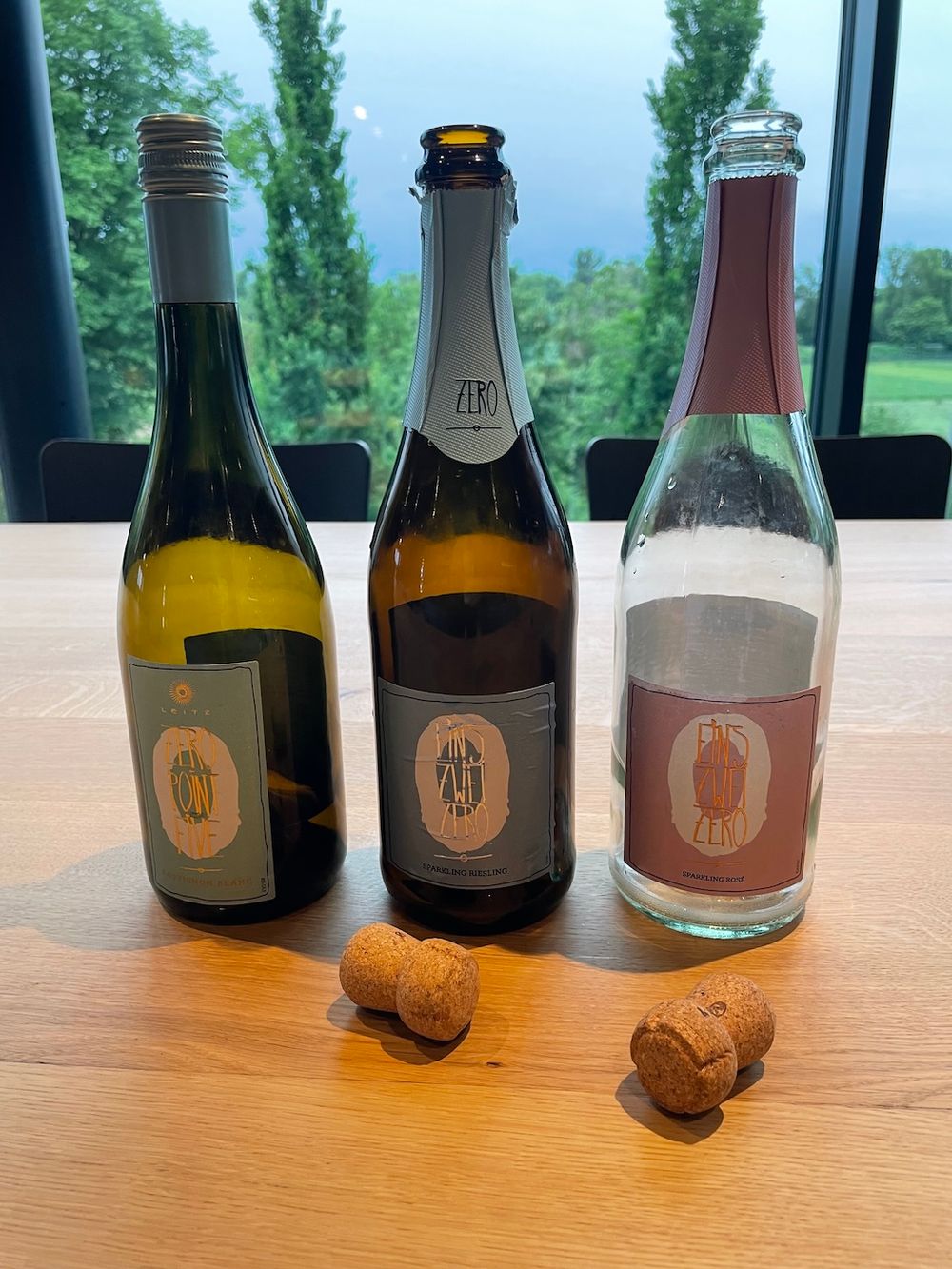
But there is a whole other category which is, arguably, even more exciting commercially. The low and no alcohol wines – “this is the only sector that is growing,” explains proprietor Johannes Leitz. The producer has an established range of low-no still wines and sparklings (aka sekt in Germany), among them the Eins Zwei Zero sparkling Riesling and the Zero Point Five Sauvignon.
Next we go south to the Rheingau region (where Riesling originated centuries ago) to meet some far less conventional winegrowers. We are moving more into the world of spontaneous fermentation with low intervention in the cellar and strict organic and biodynamic principles.
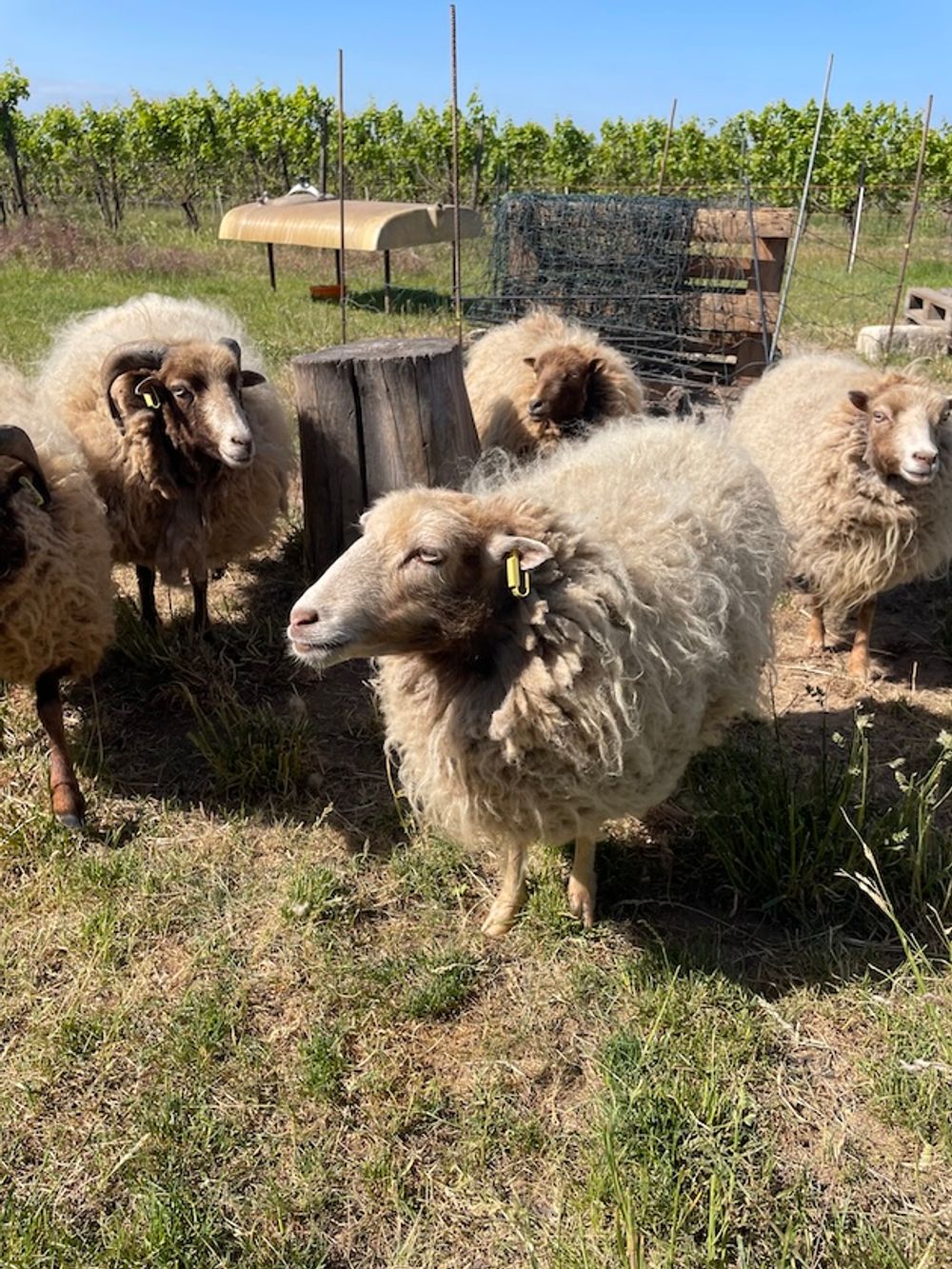
Only touching the bottom vine leaves - the sheep of Weingut Schönals
Pet nats, orange wines and things that are, frankly, a bit experimental. At Weingut Schönals we are greeted by sheep grazing amid the vines – a variety of diminutive sheep that nibbles at the lower greenery but leaves the top untouched. Owner Hanneke Schönhals explains that she loves varieties like Riesling and Pinot Noir but new fungus-resistant grape types are also vital.
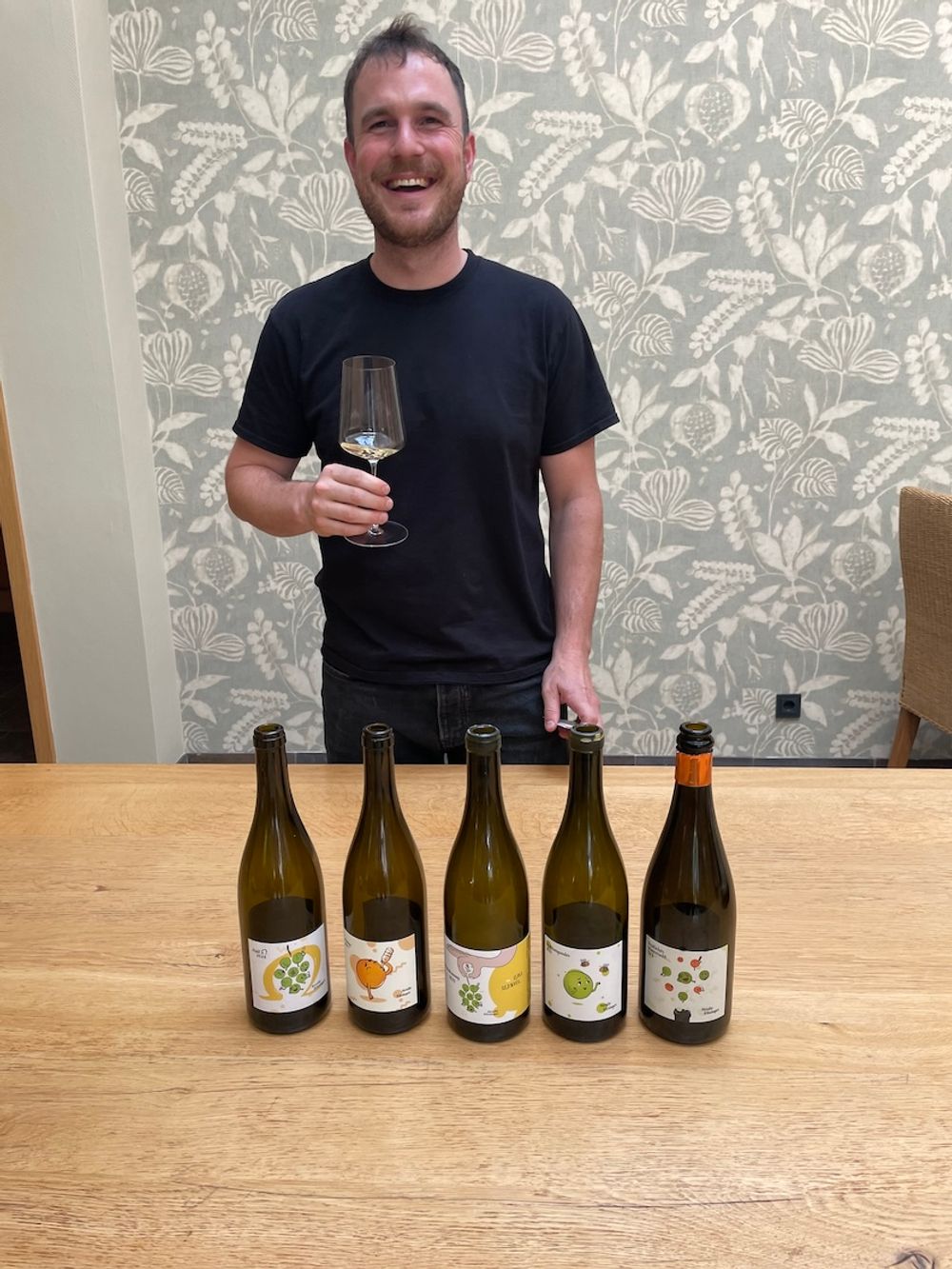
Young, energetic and risk-taking - Moritz Kissinger
In this sharp shift towards following nature’s path, the mood is young, energetic and risk-taking. At Weingut Kissinger Moritz Kissinger, who runs the winery, happily declares that not every batch goes right in the winemaking: “We lose one in ten, but I believe that that means for those that turn out well we really have brought out the best.” One of his wines has been dubbed ‘a German Montrachet’, so he is clearly doing something right.
It's when we move on to Weingut Odinstal in the Pflaz region (one of the mildest and driest areas) that I grasp the scale of the ambitions. These winemakers see themselves as part of a movement wedded to intense social ideals. The chief executive Andreas Schumann explains that the winery refuses to employ itinerant staff on the minimum wage for the harvest. Instead, they use their own people, some graduates, with the result that everyone feels they know the full wine-making process. His enthusiasm is infectious though the downside is that as he cheerfully admits, they have “incredible staff costs”. The low-intervention approach in the cellar also requires incredible attention to detail in the growing of the grapes.
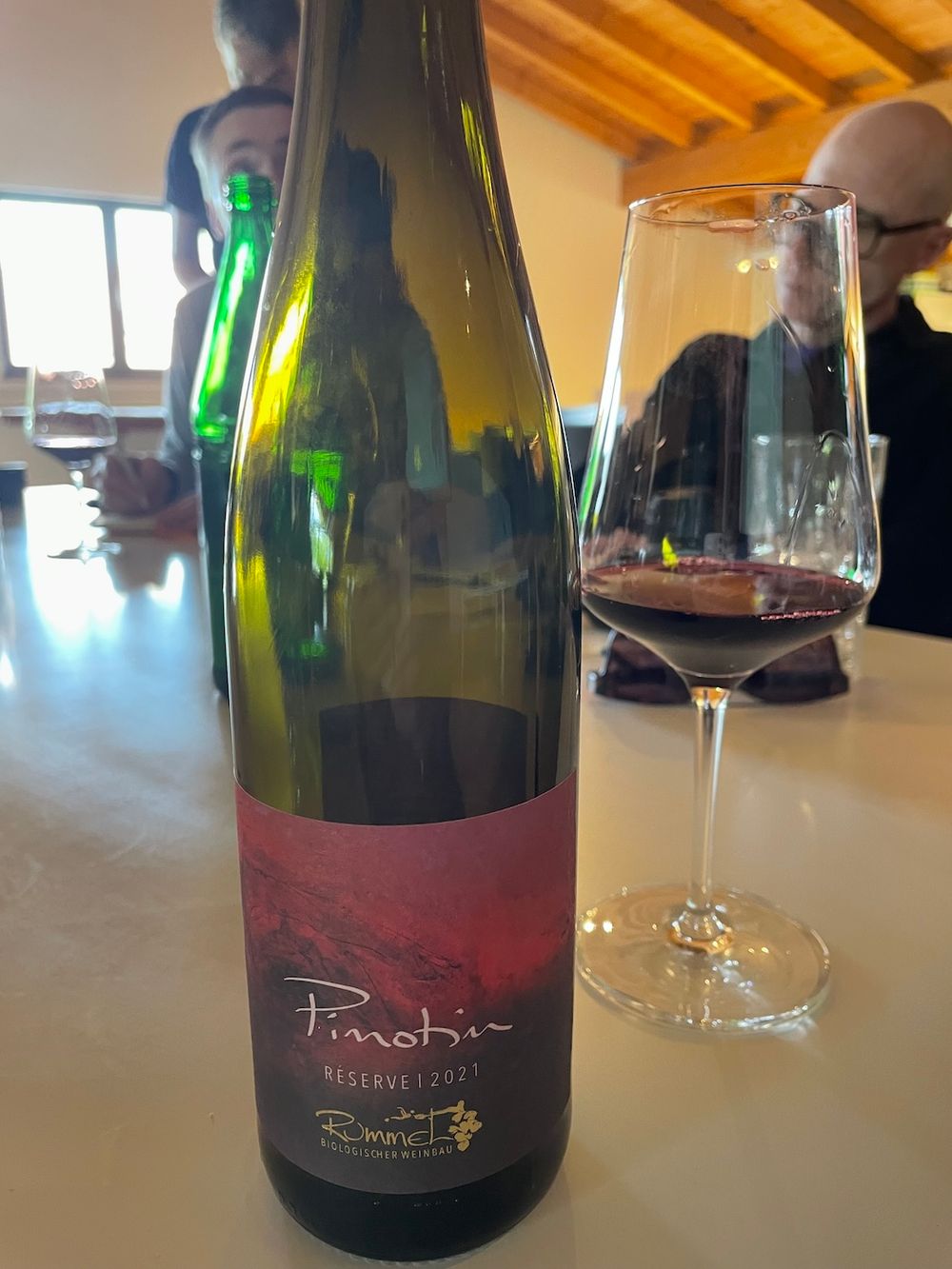
Finally, we go to the source of the fungal resistant PiWi grapes (pronounced “pee-vee” from the German word pilzwiderstandsfähige). The family business Rebschule Freytag specialises in these disease-resistant grape cultivars with cleverly crossbred names such as Pinotin, Cabernet Blanc and Souvignier Gris. These varieties are specifically bred to resist fungal diseases like powdery and downy mildew that plague traditional varieties. Because of their resistance they are a boon for organic winegrowing, needing very few chemical treatments.
I come away wondering how the Germans ever allowed their wines, Riesling in particular, to lose some of their prestige twenty or thirty years ago. But that is in the past. They now have a demanding new generation of consumers with their own ideas ready to be persuaded to buy what are world-class wines.
Top wine picks from the trip
Rheinhessen region
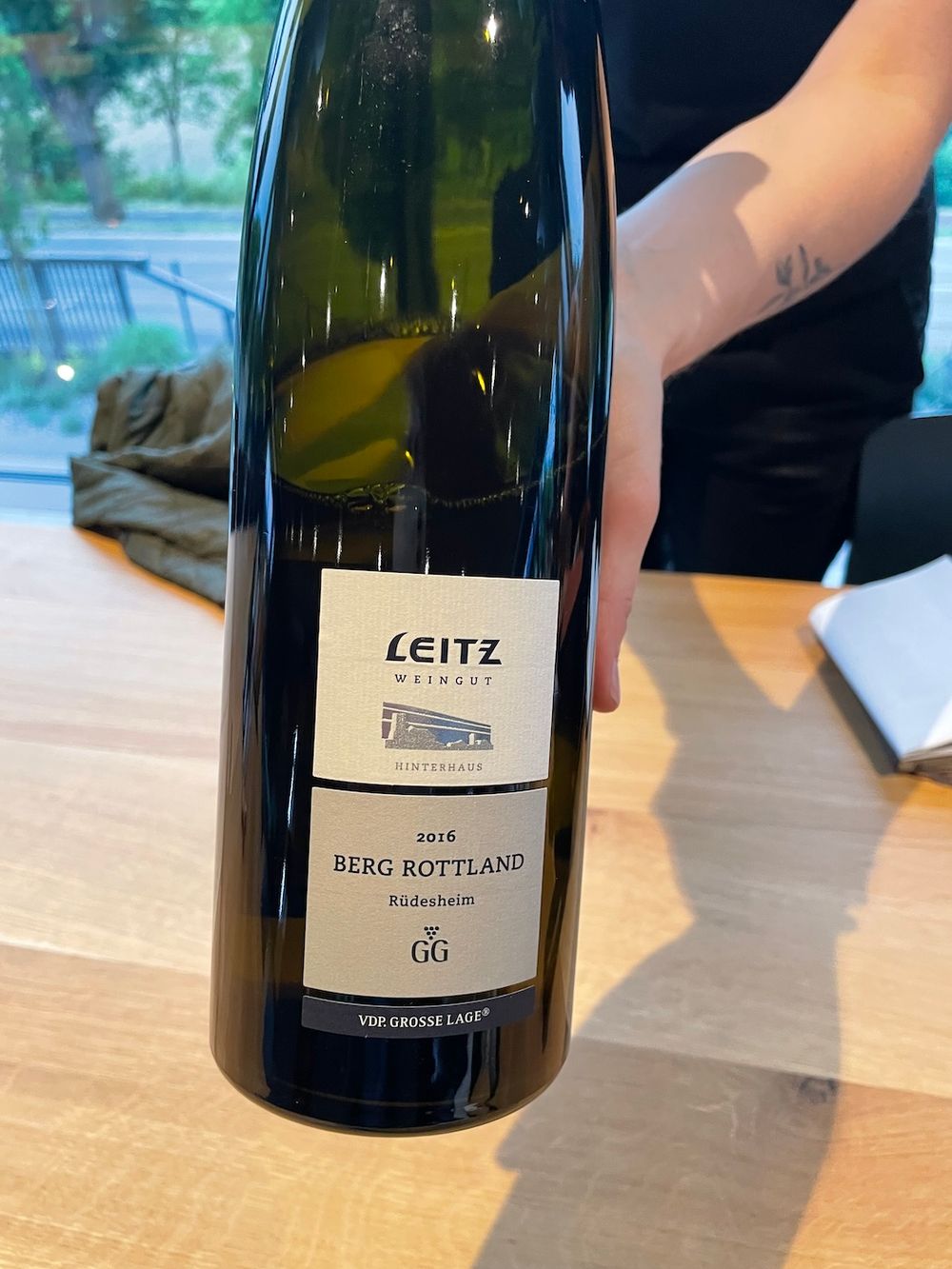
Berg Rottland (ABV 12.5%), Grosses Gewächs, typically elegant, with ripe fruit, floral fragrances and a touch of honey, plus a long finish which adds to the complexity.
Zero Point Five Sauvignon (ABV 0.5%), low alcohol de-alcoholised certain to appeal to younger health-conscious drinkers.
Eins Zwei Zero (ABV 0.0%), de-alcoholised sparkling Riesling with 4% grape must.
Rüdesheimer Magdalenenkreuz Riesling Kabinett(ABV 10.5%, €15) zesty lemon and lime, mineral backbone supports the sweetness.
Rheingau region
Réserve Cabertin (ABV 14%), an approachable red PiWi cultivar.
Weingut Kissinger
Chardonnay 2023 (ABV 12.5% €47), classy example of what German producers can do with this international grape
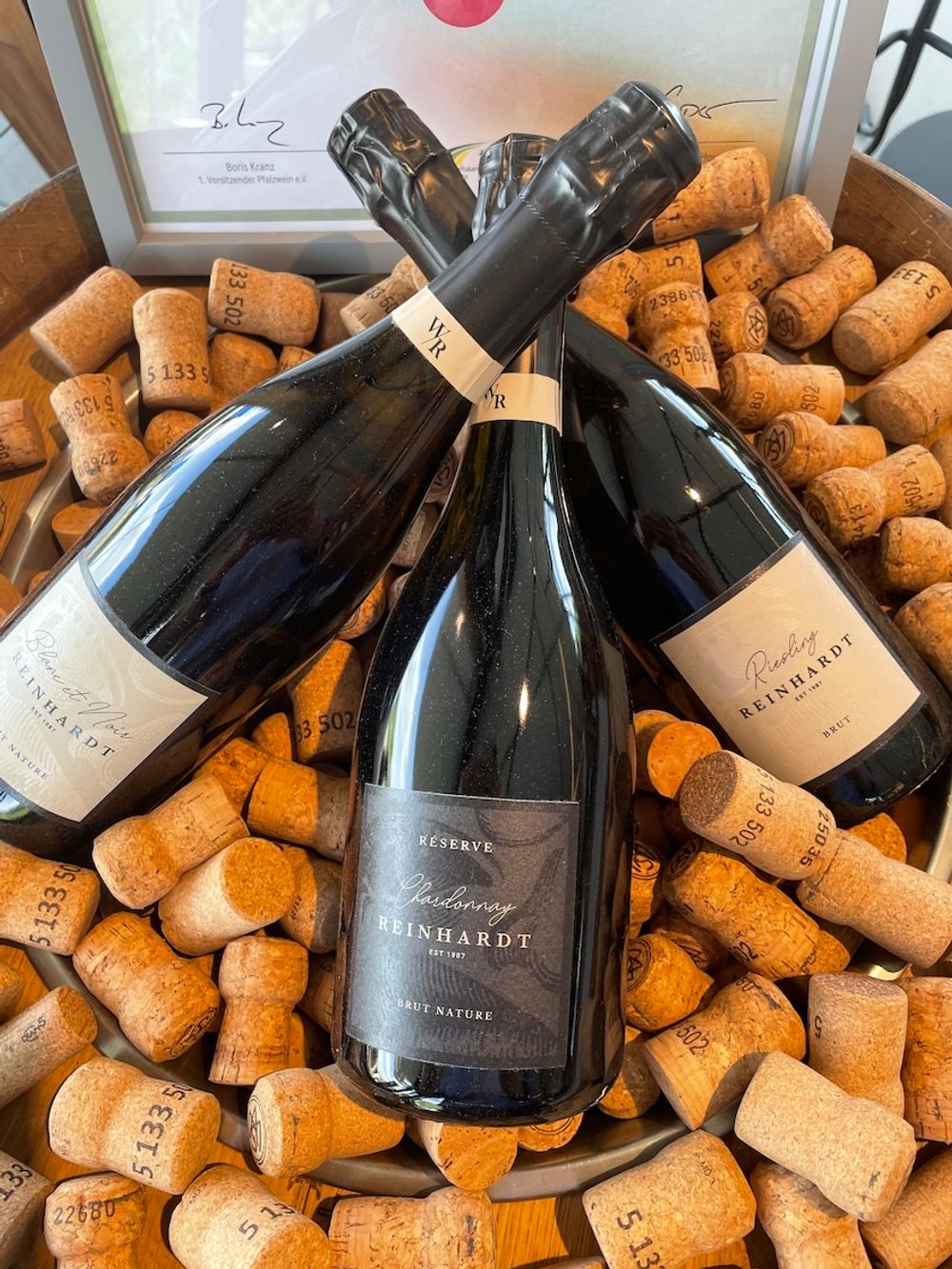
Blanc et Noir NV Brut Nature (ABV 11.5%, €17) spontaneous fermentation, 29 months on lees, no dosage, brioche, red berry, fine perlage. Terrific value.
Spätburgnder Ruppertsberg trocken 2021 (ABV 13.50%, €16), cool-climate red Pinot Noir, 18 months in barrique, cranberry, herbal-spicy – chill bottle and take on a picnic.
Pflaz region
Deutsche Sekt Riesling Brut Nature 2021 (ABV 11.5%, €65), 32 month on the lees, no sugar or sulphite, high but pleasing acidity.
Pinotin Reserve 2021 (ABV 13.5%, €19) a red PiWi produced by Weingut Rummel.
